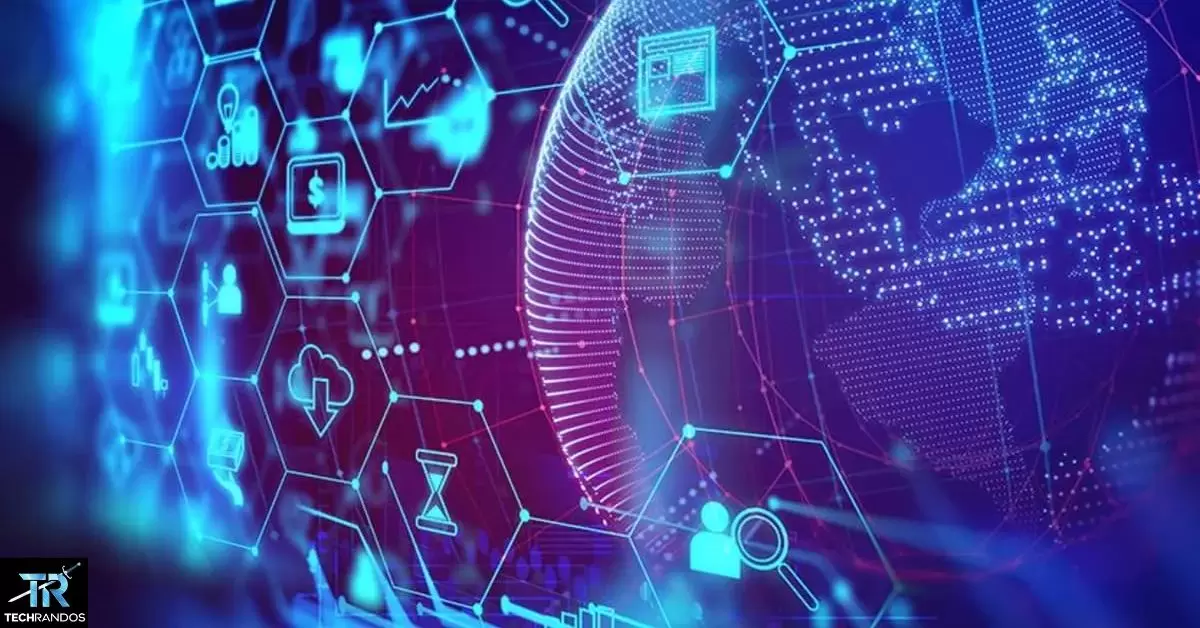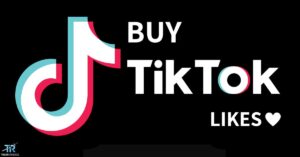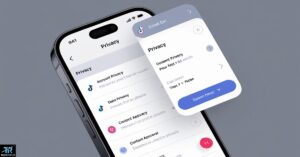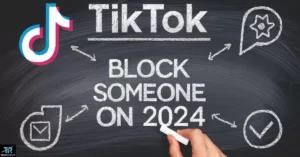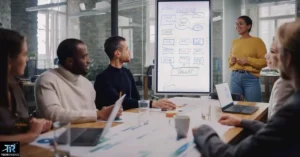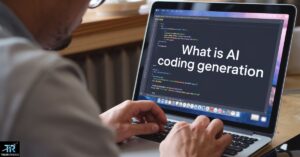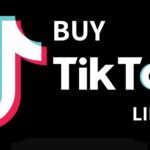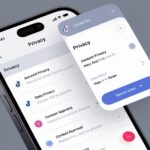Imagine a future where intelligent code governs everything – finance, supply chains, healthcare, even voting. Sounds wild, right? Well, thanks to the convergence of blockchain, AI, and crypto economics, that reality may be closer than you think. A veritable “code tsunami” could be headed our way, bringing both incredible opportunities and daunting challenges. Are we opening Pandora’s box…or riding the wave of the next great economic revolution?
Understanding the Blockchain/AI/Crypto Trifecta
At the core of this code tsunami are three powerful technologies Working in tandem:
Blockchain provides a decentralized, distributed database secured through cryptography. Instead of centralized authorities like banks controlling data, blockchain creates an immutable ledger maintained by a vast network of computers. This increases transparency and makes fraud extremely difficult.
Artificial Intelligence (AI) and machine learning algorithms are now being embedded into blockchain applications. AI can automatically execute instructions and processes encoded into smart contracts, as well as continually optimize blockchain networks themselves.
Finally, crypto economics leverages blockchain’s native digital currencies and tokenization to create economic incentives and seamless value exchange. This could enable everything from micropayments to new investment vehicles.
When this trio converges, they form self-sustaining, autonomous systems with the potential to automate trust, cut out middlemen, reduce fraud, and reshape major sectors of the economy. Proponents believe it could spur the next industrial revolution.
Recommended Post : Novel AI: The Best AI Story Generator for Creative Writers in 2024?
The Code Tsunami – 6 Areas Being Reshaped
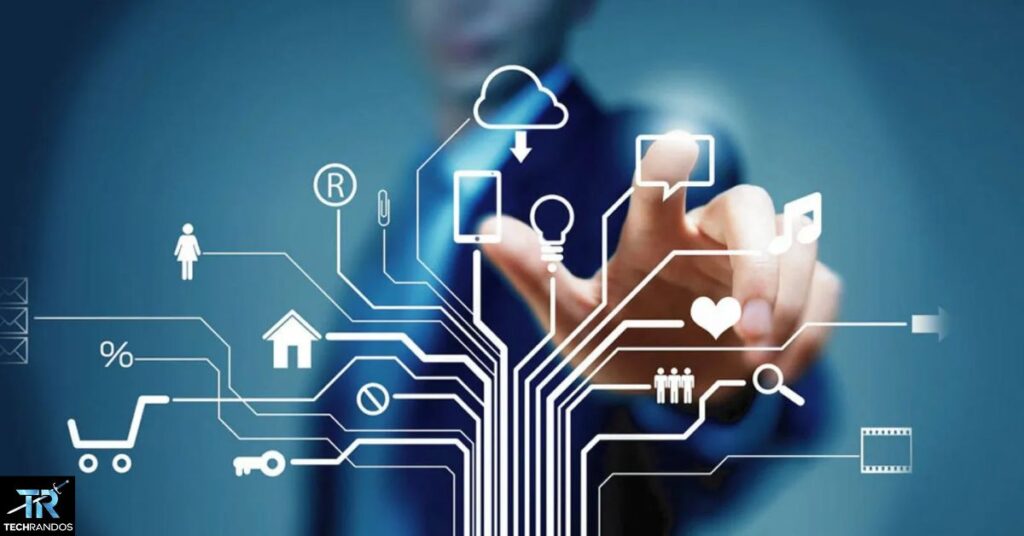
So just what could this blockchain/AI/crypto tsunami upend? Here are six major domains already being impacted:
1. Decentralized Finance (DeFi)
DeFi is the poster child for blockchain, AI and cryptoeconomics converging. Projects like Ethereum allow developers to build decentralized apps that provide financial services like lending, borrowing and trading – all without involving centralized institutions like banks.
Smart contracts automatically execute transactions based on predefined conditions. AI helps optimize lending rates, trading algorithms and more. And tokenized cryptocurrencies are the lifeblood of these DeFi platforms.
Leading DeFi projects include Compound, MakerDAO, Uniswap and many more. While still niche, DeFi is already facilitating billions in crypto transactions.
2. Supply Chain Transparency
Blockchain’s distributed, immutable ledger is perfect for tracing the complex journey of a product from raw materials to store shelves. Combined with AI for optimizing logistics and RFID/IoT data, this creates unprecedented supply chain transparency.
Companies like Walmart, Maersk, and Foxconn are exploring blockchain supply chain solutions. With blockchain, you could easily verify a food item’s farm origins, warehouse stops, temperature data and more – increasing food safety. AI could dynamically reroute shipments based on delays or shortages.
This builds more resilient, ethical supply chains while curbing fraud like counterfeits.
3. Healthcare Data Security/Privacy
Protecting sensitive healthcare data is another promising blockchain use case. Companies like IBM and PwC are piloting blockchain solutions to securely share patient records between providers while giving patients more control.
Records are encrypted via private blockchain, with varying access privileges. Patients can consent to providers joining their blockchain and accessing records. AI algorithms could analyze population health data without revealing identities.
This could finally solve healthcare’s lack of interoperability and leak-prone centralized databases – all while preserving privacy.
4. Transportation/Autonomous Vehicles
While autonomous vehicles alone are incredibly disruptive, adding blockchain and crypto takes things even further. Vehicles can communicate securely, automatically paying tolls or charging for ride-shares via cryptocurrency.
Companies like BMW, GM, Ford are exploring blockchain for data sharing between connected cars. AI and blockchain create “autonomous mobility ecosystems” optimizing supply and demand.
This makes transportation cheaper, greener and more on-demand – hastening our driverless future.
5. Creative Economies (Music, Art, NFTs)
Blockchain powers new “creator economies” by securitizing digital content as non-fungible tokens (NFTs). This enables verifying an asset’s authenticity, ownership rights, and creator royalties in perpetuity.
Music: Platforms like Audius allow artists to publish songs to a decentralized blockchain while controlling monetization. AI could diversify revenue streams.
Visual Art: NFT art has exploded, with pieces fetching over $69 million! Blockchain verifies the authentic piece while crypto provides payment.
This is just the start for empowering artists, collectors, and even brand engagement around digital assets.
6. Decentralized Organizations (DAOs)
Finally, Decentralized Autonomous Organizations (DAOs) essentially encode corporate governance into blockchain smart contracts and cryptocurrency incentives. No central authority calls the shots – decisions are collectively made by stakeholders via blockchain voting.
DAOs can crowdfund projects, hire vendors, reward contributions, and automatically share profits via crypto – all governed by blockchain rules. AI could even help DAOs implement business logic.
Notable examples include Dash, Augur, Maker and many crypto projects themselves organized as DAOs. While complex, DAOs offer intriguing alternative models for workplace organization.
Bracing for Impact – Challenges Ahead
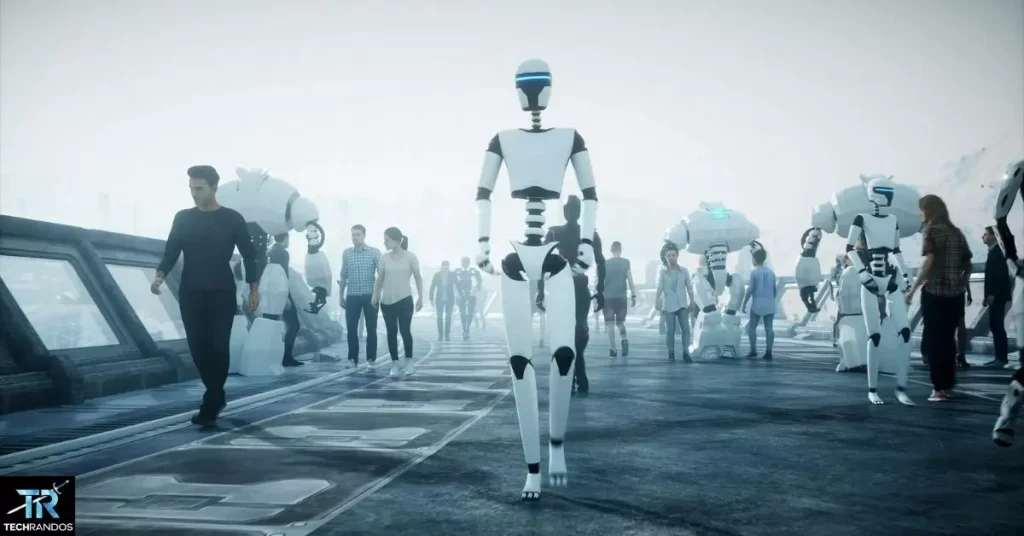
However, as promising as the blockchain/AI/crypto convergence appears, it will face significant hurdles:
Scalability: Many blockchain networks can only process a dozen or so transactions per second – dwarfed by centralized payment rails like Visa. Scaling computationally-intensive AI and blockchains globally is daunting. Innovations like sharding, Plasma, and proof-of-stake may help.
Security Vulnerabilities: Blockchain itself may be secure, but connected applications and smart contracts create new attack surfaces. Notorious exploits like The DAO Hack exposed vulnerabilities in Ethereum apps. Networks like Bitcoin have been impacted by 51% attacks. We must get security airtight before proliferating critical infrastructure.
Regulatory Uncertainty: Blockchains, cryptocurrencies, and decentralized apps inhabit a legal gray area in most jurisdictions. Proponents argue for light regulation, while critics call for consumer protection. Reaching a regulatory consensus amenable to innovation will be paramount.
Organizational Resistance: Many entrenched players will fight blockchain disruption tooth-and-nail to protect existing revenue streams and business models. Innovators may facewell-funded lobbying from banks, supply chains, entertainment companies and others feeling threatened.
Societal Impacts: Increased productivity is great – but what happens to workforces displaced by automation? We must confront blockchain/AI’s potential to exacerbate wealth inequality and social dislocation. Then there are urgent ethical questions around data privacy, algorithmic bias, and AI transparency.
Suffice to say, the blockchain/AI/crypto tsunami comes with its share of hazards to navigate carefully. But taking a measured, responsible approach could still unleash a wave of prosperity.
Surf’s Up – Upskilling for the Code Tsunami
So just what skills will you need to ride this code tsunami instead of being swept away? Here are a few key areas:
Core Technical Skills
- Blockchain development (Ethereum, Hyperledger, etc.)
- AI/machine learning (Deep learning, neural nets, etc.)
- Cryptography fundamentals
- Programming literacy (Solidity, Python, C++, etc.)
Multidisciplinary Knowledge
Beyond hard coding skills, those combining blockchain with other disciplines like economics, law, science, philosophy and more will be indispensable.
Lifelong Learning Mindset In a world of constant disruption, curiosity and commitment to perpetually learning new technologies and paradigms is crucial. Those stuck in rigid, siloed thinking will be rapidly outmoded.
Collaborative Abilities No single person can possibly master all aspects of this complex code tsunami. Thus, teamwork, communication, and managing decentralized collaborations will be vital skills.
Governments, businesses and universities must all update curricula, incentives and thinking to cultivate these future-proof skills. We need holistic thinkers prepared to responsibly steward these revolutionary technologies’ ethical development.
Frequently Asked Questions
1. Wait, what exactly is the blockchain?
The blockchain is like a huge, decentralized spreadsheet that keeps track of absolutely everything! It’s a digital ledger of transactions, data, you name it – but instead of being controlled by a single party like a bank, it’s maintained by a network of computers all verifying and agreeing on every new entry. Kinda like a mega-robust, ultra-transparent accounting system for the internet age.
2. How does AI fit into all this crypto madness?
AI is becoming the secret sauce that supercharges blockchain and crypto applications! Intelligent algorithms can automatically execute the instructions coded into blockchain smart contracts, streamlining business processes. AI also optimizes blockchain networks themselves by analyzing trends and maximizing efficiencies. Toss in AI’s ability to power hyper-personalized services and recommendation engines, and you’ve got a dynamic decentralized application layer.
3. This “crypto economics” thing sounds like money games…
You’re onto something! Crypto economics refers to the innovative incentive models and unique mechanics enabled by blockchain-based cryptocurrencies. Suddenly, we can reward any digital behavior or contribution – not just financial transactions. It’s driving new crowdsourcing, sharing economy, and peer-to-peer platforms where participants earn crypto tokens for their engagement, computing power, or creative works. Get ready for some crazy new business models!
4. Why should I care about any of this blockchain/AI/crypto stuff?
Well, these technologies are rapidly disrupting fields like finance, supply chains, healthcare, transportation, governance and more. Decentralized apps (dApps) running on blockchains with AI and crypto incentives could eventually touch nearly every aspect of how we transact, create value and organize our lives and businesses. So it’s probably wise to start wrapping your head around the massive potential impacts sooner rather than later!
5. This all sounds amazing! But what are the risks?
You raise a great point – this tsunami of blockchain/AI/crypto innovation doesn’t come risk-free. We’ll need to tackle major challenges around scalability, security vulnerabilities, regulatory hurdles, user adoption and more. There are also ethical minefields around data privacy, algorithmic bias, wealth inequality from automation, and governing these powerful decentralized systems responsibly. Proactive policies and education will be crucial.
6. So how can I get in on this crypto craze?
The most future-proof investment is simply immersing yourself in learning blockchain/AI/crypto fundamentals and use cases. Study up on concepts like distributed ledgers, smart contracts, tokenization models and decentralized computing. Follow the DeFi, DAO, NFTs and other bleeding-edge projects to get comfortable with the rapidly evolving landscape. Developing coding, cryptography and multidisciplinary skills will position you well.
7. If this decentralized future is so inevitable, what’s next?!
While blockchain with AI and crypto incentives powers some mind-blowing applications, it really represents a paradigm shift in how we coordinate nearly every human activity and business model. It enables collaboration and coordination at global scales without centralized institutions. We’re at the dawn of the “Decentralized Age” – where technology decentralizes power, governance, value creation, you name it. Prepare for every sector and organization to be rebuilt around decentralized models.
Conclusion: The Rip Current of Change
Make no mistake – the blockchain, AI, and crypto economic tsunami is already starting to swell across industries. Projects large and small are piloting decentralized apps that could soon redefine finance, supply chains, healthcare, transportation, organizational governance and more.
While fraught with challenges around scalability, security, regulation and disruption – the convergence of these three technologies represents tremendous potential to create fairer, more efficient, transparent and secure systems.
However, we will undoubtedly face intense opposition and inertia from powerful players currently profiting from and protecting outdated centralized models. Incumbents in industries like banking, logistics, entertainment and others being disintermediated by decentralized alternatives won’t go down without a fight.
There are also very real societal impacts to grapple with around job displacement from automation, wealth inequality, data privacy, and governing AI systems to be ethical and unbiased. We must get ahead of these concerns through proactive policy and upskilling.
Ultimately though, the tsunami of blockchain, AI and crypto economic forces appears unstoppable in fundamentally reshaping how we organize nearly every human activity and industry. The only question is – are you ready?
Will you work to ride the rip currents of change, becoming part of this unprecedented digital transformation? Or will you be overwhelmed by the crashing waves of disruption?
Those embracing a future-focused lifelong learning mindset – combining code literacy with interdisciplinary knowledge – will be best positioned to navigate the tumult and emerge as leaders shaping a decentralized world. An appreciation for the interplay between technology, economics, governance and society will be vital.
So start studying up on blockchain fundamentals and AI capabilities. Follow the latest DeFi, DAO and smart contract developments. And perhaps most importantly – get conversant in the crypto economic models incentivizing and propelling this code tsunami.
One way or another, these technologies are inevitable currents you’ll soon be swimming against or riding out. The choice of being a disruptor or being disrupted has never been so stark.
